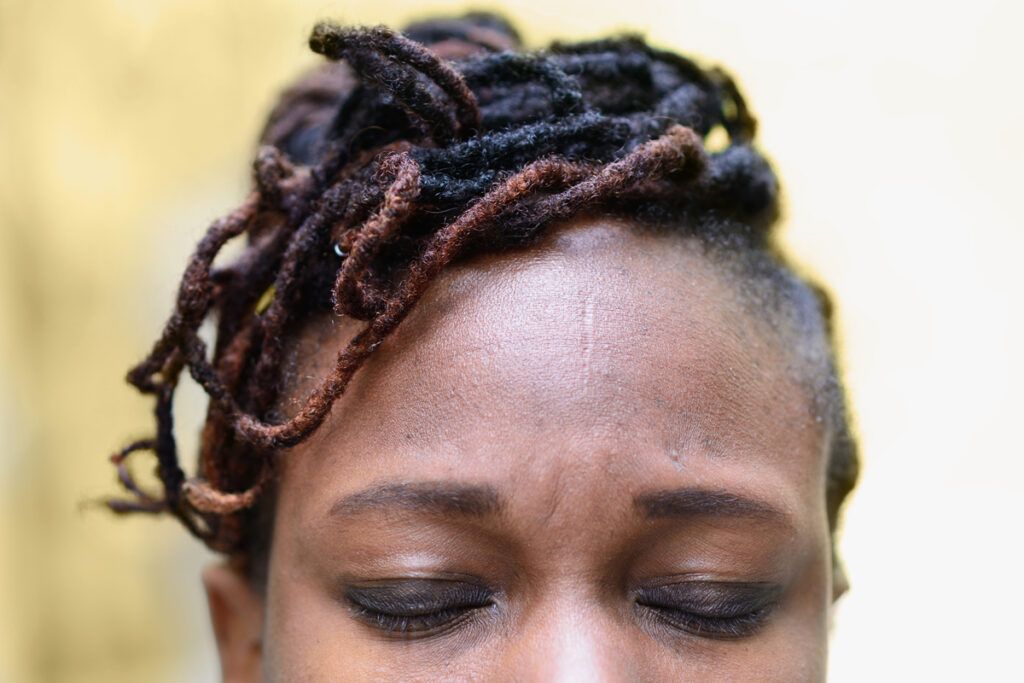Experts believe there may be a connection between allergies and migraine.
According to the American College of Allergy, Asthma, & Immunology, allergies can lead to headaches or migraine because allergies cause your sinuses to swell. This blocks your airways and causes pressure to build, leading to dull pain around the face or head.
Allergy-related headaches and migraine often cause pain around the blocked sinuses, which might include your cheeks, jaw, teeth, or around your head.
There are many effective treatments for both allergies and migraine. Managing your allergies may help you prevent headaches and migraine attacks.
The link between allergies and migraine

Some research has shown a link between allergies, headaches, and migraine.
A small 2017 study looked at migraine frequency in 49 people with migraine and 49 people without. The results showed that people with migraine and certain allergies — including dust or wheat allergies — had migraine attacks more frequently.
The researchers also reported that 55.1% of people with migraine tested positive for allergies, compared with 32.7% of people without migraine, further suggesting a link between the two.
However, headaches can be complex, and some may not be related to migraine. For example, if your allergies affect your sinuses, you may experience a headache rather than migraine. These headaches often come with facial pain.
Aside from allergies, there are many other causes of migraine. Genetics is a leading factor, and specific migraine triggers can include certain scents, like strong perfume or smoke, and stress.
Seasonal allergies
People with seasonal allergies will often notice their symptoms flare during particular months of the year due to increasing amounts of pollen and mold.
Also known as hay fever or allergic rhinitis, symptoms of allergies can include:
- itchy eyes, nose, and throat
- running nose
- coughing
Common allergens
You may notice allergy symptoms when your body has an uncommon response to something typically harmless.
Common allergens include:
- animal fur
- house dust mites
- pollen
- medications
- insect stings or bites
- foods, like peanuts, eggs, or milk
Some of these allergens may cause symptoms that trigger migraine.
Migraine symptoms
Experiencing migraine can be debilitating.
Migraine attacks can bring moderate to severe pain on one side of the head, along with other migraine symptoms, including:
- light sensitivity
- nausea
- sound sensitivity
- visual or sensory disturbance, known as migraine aura
What does migraine feel like?
With a migraine attack, you may feel a pulsating or throbbing pain on one side of your head. Less commonly, you may feel pain in both sides of your head and into your neck.
Nausea and vomiting are common symptoms, and light and sounds may appear brighter and louder than usual.
Looking after yourself during these episodes is vital. In addition to other remedies or medications that may work for you, a darkened, quiet room is often beneficial until symptoms pass.
Migraine triggers
Research tells us that migraine has many triggers, but stress seems to be the greatest. Others include:
- hormonal shifts (often related to a menstrual cycle)
- weather changes
- skipping a meal
- too much or not enough sleep
Recognizing your triggers is one of the most effective ways to manage migraine attacks and reduce their frequency.
Allergy migraine treatment
Treating allergies may differ from treating migraine, but some medications could help with symptoms or prevention.
The table below looks at some other medications doctors may prescribe for migraine.
The following medications are preventive, meaning they reduce your chances of having migraine:
- nortriptyline (Pamelor)
- venlafaxine (Effexor XR)
- valproic acid (Valproate)
- topiramate/topiramate ER (Topamax)
Other medications treat migraine attacks when they arise. These include:
- dihydroergotamine (Migranal)
- triptans, such as almotriptan (Axert) and eletriptan (Relpax)
- gepants, such as lasmiditan (Reyvow) and ubrogepant (Ubrelvy)
If you need help covering the cost of medications, the free Optum Perks Discount Card could help you save up to 80% on prescription drugs. Follow the links on drug names for savings on that medication, or search for a specific drug here.
